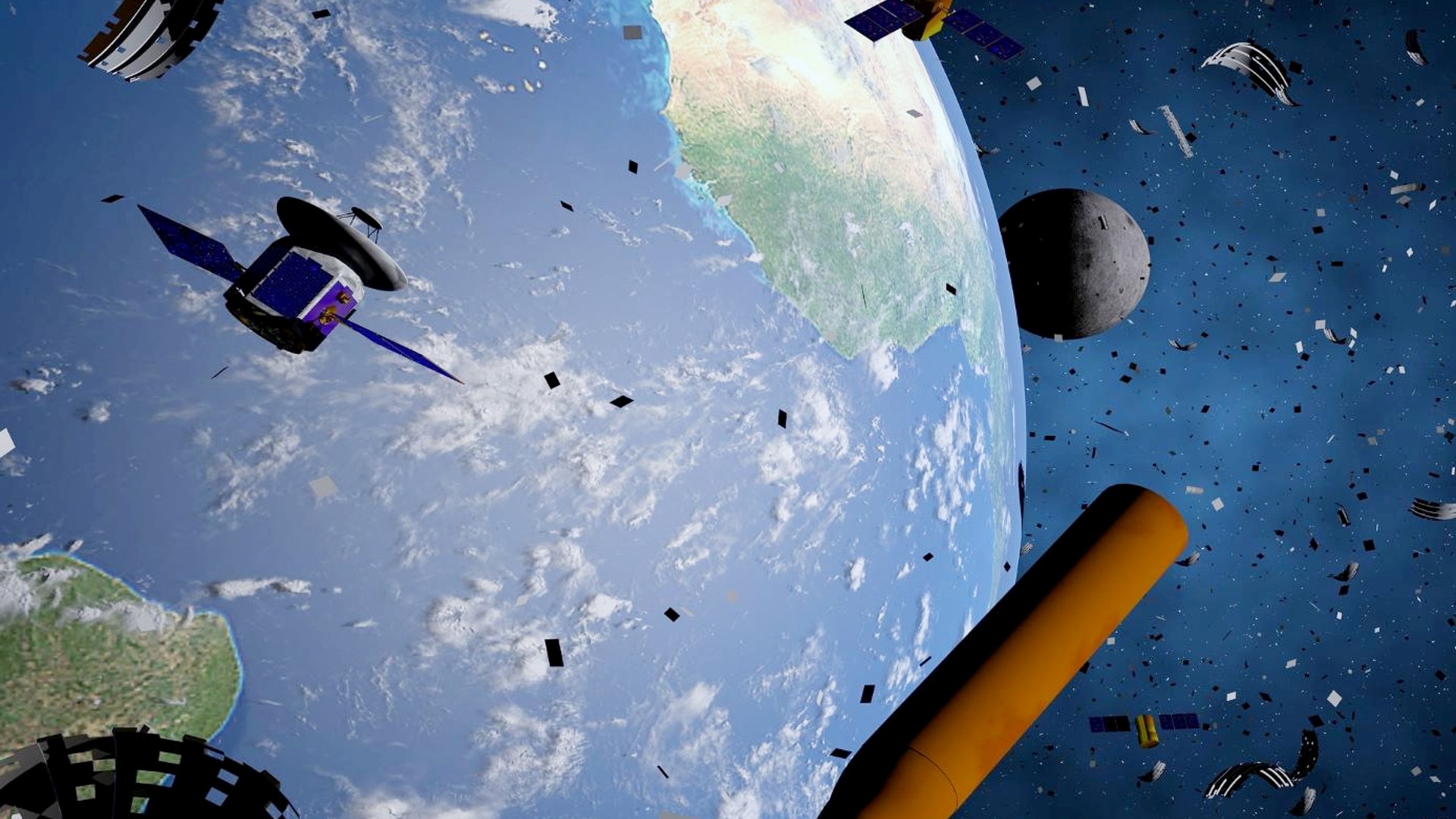
The U.S. Federal Aviation Administration (FAA) wants to lighten our planet's space-junk load.
The FAA — which, among other duties, awards launch licenses — has proposed a rule that would limit the amount of time that private rockets' upper stages stay in orbit.
The proposed rule, which the FAA released in draft form on Wednesday (Sept. 20), seeks "to limit the growth of new orbital debris and reduce the potential for collisions with spacecraft and satellites to promote a sustainable space environment," the agency wrote in a statement on Wednesday.
Related: Taking out the trash: Here's how private companies could be vital for space debris removal
The potential regulation would give commercial launch operators five disposal options for their upper stages (the part of the rocket that deploys the payload). Those options are, in the FAA's words:
- Conduct a controlled reentry;
- Move the upper stage to a less congested storage or graveyard orbit;
- Send the upper stage on an Earth-escape orbit;
- Retrieve the upper stage (called active debris removal) within five years; or
- Perform an uncontrolled atmospheric disposal.
If companies opt to let their upper stages fall uncontrolled from low Earth orbit, they'll have 25 years for that to happen, according to the draft rule, which you can read here. But it leaves open a more accelerated timeline.
"Given that the entire mission lifetime of upper stages and their components is quite short, and spent upper stages pose a significant risk of debris propagation the longer they are in orbit, it may be appropriate to have a shorter disposal timeline of 5 years or another time period less than 25 years," the proposed rule states.
Get the Space.com Newsletter
Breaking space news, the latest updates on rocket launches, skywatching events and more!
"Shortening the removal deadline would decrease the risk of orbital debris causing damage to spacecraft, which could create more debris, shorten another spacecraft’s mission or endanger the lives of human spaceflight participants," it adds.
Such regulations would help mitigate the threat from space junk, which is already considerable, given how crowded Earth orbit is getting.
"As of July 2023, the number of orbital objects sized 10 cm [4 inches] or greater is estimated to be over 23,000," the FAA wrote in the Wednesday statement. "Recent debris projections estimate a total of one-half million objects sized between 1 and 10 cm [0.4 to 4 inches] on orbit, and over 100 million objects larger than 1 mm."
The proposed rule will be published in the Federal Register in the next few days. That milestone will kick off a 90-day public comment period, FAA officials said.
Join our Space Forums to keep talking space on the latest missions, night sky and more! And if you have a news tip, correction or comment, let us know at: community@space.com.

Michael Wall is a Senior Space Writer with Space.com and joined the team in 2010. He primarily covers exoplanets, spaceflight and military space, but has been known to dabble in the space art beat. His book about the search for alien life, "Out There," was published on Nov. 13, 2018. Before becoming a science writer, Michael worked as a herpetologist and wildlife biologist. He has a Ph.D. in evolutionary biology from the University of Sydney, Australia, a bachelor's degree from the University of Arizona, and a graduate certificate in science writing from the University of California, Santa Cruz. To find out what his latest project is, you can follow Michael on Twitter.
-
Space Duck Reply
The US Federal Aviation Administration has no jurisdiction in Space. Whether Near Earth Orbit, Far Earth Orbit, or otherwise. They regulate " Airspace ". And only hold authority over US Airspace at that. This falls under " Overstepping Authority of Organizational Charter ".Admin said:The U.S. Federal Aviation Administration has proposed a rule that would limit the amount of time that rockets' upper stages stay in orbit.
FAA proposes rule to reduce space junk in Earth orbit : Read more
An International Space Regulatory body, possibly under the UN will eventually occur. -
COLGeek Reply
You might be interested in this information:Space Duck said:The US Federal Aviation Administration has no jurisdiction in Space. Whether Near Earth Orbit, Far Earth Orbit, or otherwise. They regulate " Airspace ". And only hold authority over US Airspace at that. This falls under " Overstepping Authority of Organizational Charter ".
An International Space Regulatory body, possibly under the UN will eventually occur.
https://www.unoosa.org/oosa/en/ourwork/spacelaw/treaties/introouterspacetreaty.html -
Space Duck Reply
With Respect.COLGeek said:You might be interested in this information:
https://www.unoosa.org/oosa/en/ourwork/spacelaw/treaties/introouterspacetreaty.html
No one pays attention to anything the UN, or International Treatise made by the UN Agencies.
Look at " Weaponizing Space ". Restricted & Banned for decades now.
Yet everyone violated that Treatise.
Look at Chemical Weapons banned by Treatise.
Assad of Syria still goes unpunished Internationally for gassing his own people on Saddam Husseins birthday.
Look at Mine Ban Treatise.
Which the US, and other Nation-States refuses to sign on to.
Ukraine signed into it. Yet, still uses / used PLM-1 " Butterfly " mines all along the Belarusian border, Eastern & Southern Ukraine. Deployed via 220mm " Uragan " Rocket Artillery system.
Even right now, Space Treatise is being violated. By the US Space Farce.
I respect what you edited out of that post. And wont repost it.
However, its kind of impossible to discuss space without discussing Politics of the respective Nation-States with Space Programs.









